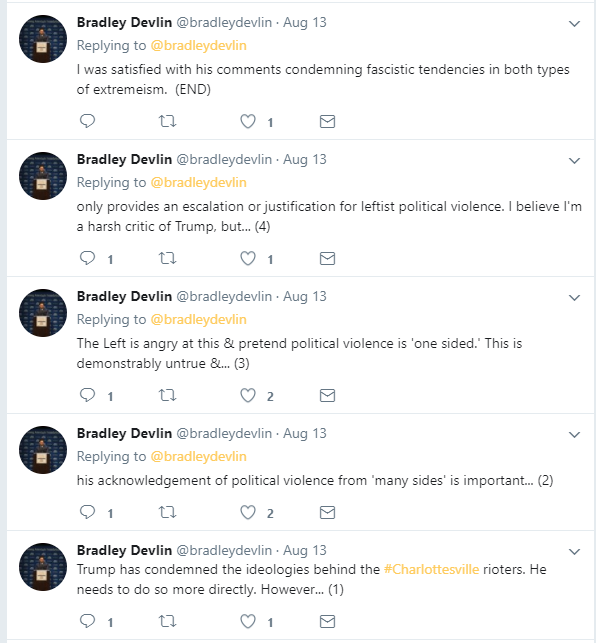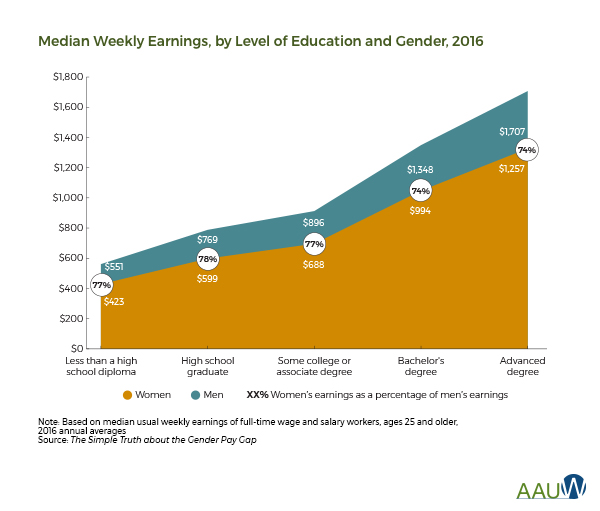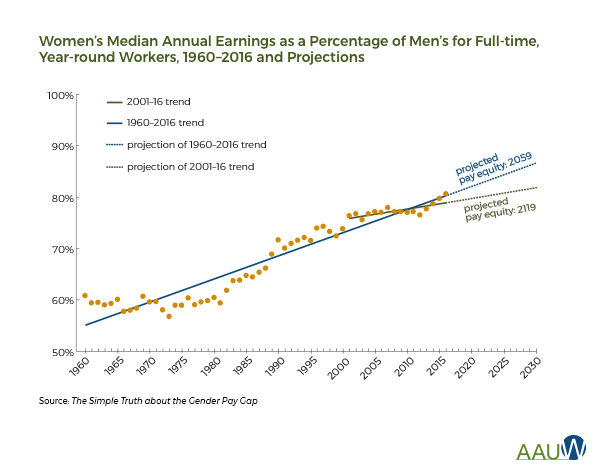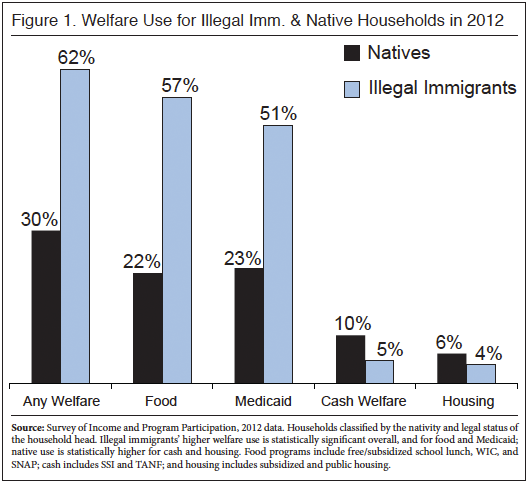Note: The views in this article are those of the author alone, and do not represent the views of any organization in any official capacity.
Even to outsiders, it is hard to miss the drama surrounding the Berkeley College Republicans that has drawn national attention by inviting controversial speakers and giving rise to protests that have turned violent. But the recent impeachment of Troy Worden, the BCR president, has revealed factional infighting within the BCR, starring one particular group that wants to take back their club and move towards a more traditional form of conservatism. Bradley Devlin is the Secretary of the Berkeley College Republicans and was the one who impeached Worden by calling a no-confidence vote and had members of the Greek system/his fraternity to come and vote for Worden’s impeachment. I recently sat down with Devlin and asked him some questions concerning his personal political views and where he wants BCR to be, now that what he calls “the Trumpian faction” has lost their seat in power. In short, Devlin holds less politically volatile beliefs than Worden, but it does not make the BCR less dangerous. Devlin’s centrist ideals are only palatable in a context that includes the Trumpian faction, but his beliefs are no less politically violent, and the structure of the BCR invites this form of radicalism.
Part 1: Who is Bradley Devlin?
Bradley Devlin is a second-year student studying political economy at UC Berkeley. He is also a contributor to the Daily Wire and Red Alert Politics, both of which are reported to have conservative biases and mixed credibility on factual reporting. In response to the Charlottesville protests, the Daily Wire’s John Nolte reported that “vigilante protesters [were] starting to dig up the remains of Confederate Lt. General Nathan Bedford Forrest” which has now been shown to be false. Red Alert Politics has similarly had trouble with its fact-checking, with headlines that just conjure up sensationalism for the far-right. A sample of Devlin’s writing is in this piece, “BART: Political correctness is getting in the way of fighting crime in the Bay Area” which targets BART’s recent move to not release security footage to the media for several reasons, such as the fact that the videos contain minors, that it is evidence for ongoing crimes, etc. But what Devlin focuses instead on is the internal memo where BART directors contend that showing these videos to the public may generate a racial bias and unfair stereotype of riders of color. Devlin’s criticism is generic and does not escape from pre-existing conservative voices who laugh at political correctness. But we know that media representation does conclusively shape internal prejudices and can ultimately betray the accuracy of events and lead to racist comments and backlash. Just look at the comments of any right-leaning reports on people of color and you can see how effective this is. And this is the beginning of the exploration into Devlin’s unabashed political views.
Devlin does not hide his more controversial political views in person, either. In our interview, I took the time to ask his opinion on several politically salient current events. On Trump’s controversial remarks about Charlottesville, Devlin reacted with the following on Twitter:

He defended Trump’s statement that “both sides” were to blame for the violence in Charlottesville. To be clear, Devlin is very much a Trump critic and a critic of the alt-right. Upon being asked if the Nazis and the “alt-left” (a term that technically does not exist in mainstream political discourse, but for the purposes of the interview were identified as Antifa and Black Lives Matter, among other similarly-minded political organizations) were the same, he responded: “While there is something specifically disgusting about Nazism and knowing the history of Nazism and willing identifying as a Nazi, the tactics that the alt-left and the alt-right use violate civil discourse and erode our civil contract and civil society. They are equally repugnant.” In other words, Devlin thinks that groups like Antifa and BLM are just as evil as the Nazis. The inclusion of BLM is of particular interest. His comparison rests on an oft-repeated term in our interview which was “tribalism”, stating that these two groups hold ideologies that are very insular and static, and uses that premise to justify his statement that intolerance to different views is equally repugnant when compared to Nazism. The difference here is that he does not hesitate to call Antifa the “scum of society”.
So what about other issues, like gender? Devlin said that “women are more driven to majors that don’t particularly pay well” and when asked if this was because women are socialized away from the STEM field in their childhood, Devlin responds with the age-old sexist belief that “socialization is a reflection of biological differences.” Devlin offers several defenses of his viewpoint, first arguing that individuals who are talented in their field should still be hired because otherwise companies would be “missing out” on their talent. Second, he argues that female representation in higher education is increasing and should also bridge this gap, which is unsupported by comparative analysis; the graph below shows that women with the same educational background as men still earn 26% less than their male counterparts.

Devlin continues by arguing that these statistics are just an average and that if we were to go into each profession, we find that the wage gap is only two to six cents of difference, which was found nowhere in any credible research. Regardless, that’s not how the 77 cents on the dollar statistic was derived. The comparative and relative analysis is still in each profession, and while there are some areas and locations where the earnings ratio is smaller, it is nowhere near where Devlin is saying. Just take a look at the graph below, that charts the discrepancy and shows it to not go away anytime soon.

With regard to police brutality, Devlin does not think they are racially motivated. He cites a piece from the National Review that backs up the idea that white people were more likely to be fatally shot by the police. Devlin also argues that the statistical evidence backs up his claims, despite a sparse dataset on police shootings. The Yale-compiled dataset conducted by Roland G. Fryer, a professor of economics at Harvard, on officer-involved shootings is limited, and as the “penalties for wrongfully discharging a lethal weapon in any given situation can be life-altering, thus, the incentive to misrepresent contextual factors on police reports may be large” and that they do not include the witness’ side of the incident. Where the data exists, like in Florida, we find that the police do disproportionately fire their guns and murder at black people.
Additionally, Devlin is not sympathetic to government intervention on behalf of transgender rights. He thinks that “implementing broad, unspecified policies on a federal level, especially with the bathroom situation, wouldn’t be beneficial” and argues that states and municipalities will resolve the issue. In states like North Carolina that have consistently displayed political behavior that does not support transgender rights, Devlin believes that “the government has allocated the proper avenues of combatting these issues. If an individual feels like they are being harassed specifically because they are a transgender individual and they are being genuinely threatened, there are legal routes and avenues to take.” This logic places the burden on trans individuals to defend themselves and take legal action but also assumes that trans people have access to the necessary resources to take on such a large fight, especially against corporations, businesses, or even governments. The American Foundation for Suicide Prevention finds that on average about 41% of trans people attempt suicide in their lifetime. The National Center for Transgender Equality shows that one in five trans people face housing discrimination; one in ten have been evicted because of their gender identity; one in five trans people experience homelessness, and 20-40% of the 1.6 million homeless youth identify as LGBTQ. The discrimination that trans people face is so pervasive and systemic that these “protections” that Devlin has so much faith in are functionally useless.
On immigration, despite the fact that economists almost universally agree that immigration is a huge benefit for the American economy, Devlin believes that because undocumented immigrants are large recipients of welfare programs with 62% of undocumented immigrants taking welfare (breakdown below), they levy an undue burden on the American taxpayer. While Devlin is correct that taxpayers do have to pay for welfare, it only makes up 9% of the federal budget. In fact, “spending on safety net programs increased by only $4 billion between 2015 and 2016, and declined as a share of the budget, as the economy continued to improve” as reported by the Center on Budget and Policy Priorities. Indicating that as the economy does better, welfare entitlements decrease. This isn’t even a partisan belief. One of the big reasons why conservatives are so pro-free market is because they believe that the economy can save people from destitute poverty and decrease entitlements. Devlin’s solution to what he believes is a problem is to make immigration a meritocracy, where the government chooses immigrants based on their merits. Meritocracy in immigration has historically proven to not work, nor does it help the American job sector. Specifically, on DACA, Devlin believes it to be unconstitutional, citing the lawsuits filed against the Obama administration to reinforce his claim, despite the fact that all except for one of these lawsuits were dismissed; the one that did make it to the Supreme Court sat at a 4-4 split.

Part 2: What Happens to BCR now?
We’ve already established Devlin’s political views, and they are no less toxic. While Devlin and his followers are not as outspoken and volatile as the prior BCR administration, the demonstrative value of his political beliefs are either factually incorrect or they are just as socially isolated from the reality of marginalized communities. But what does this mean for BCR as a whole? I asked Devlin what his vision for BCR was going to be. To be fair, Devlin is not the new de facto leader of BCR. Currently, BCR is just a headless snake with no real direction until they hold their new elections. But either a member of the “Trumpian faction” wins and takes the reigns again, or someone like Devlin wins. Either way, the BCR will remain just as politically volatile and hostile to the student movements against their speakers. In all fairness, Devlin is very much against the tactics that Trumpians like Worden have used, which, in his words, have made it into a “troll factory, a media factory that wants to do whatever will trigger the most liberals, to catch headlines, or to have a good laugh.”
Devlin himself even maintains that he would want to invite more speakers on campus. And while these speakers are nowhere near speakers like Bannon, Coulter, or Yiannopoulos in their controversy, they still espouse views and push for policies that would harm the diversity of communities that Berkeley holds. And this is where the old-BCR is no different from Devlin’s ideologies. The cooption of the old free speech movement that held to protest against oppressive government policies and unethical war efforts is distinct from the “free-speech movement” that is taking place today. BCR will try to re-brand itself and will probably be quieter than their previous iteration and we will see them less on national television, but that does not make them any less supportive of policies and, more importantly, politics that hurt innocent people based on their identity.
There is a distinction between free speech and performative speech, where the ideologies of the BCR-invited speakers ultimately only serve to make minority communities feel unsafe in their homes. They will continue to call liberals on campus ‘snowflakes’ or ‘cucks’ (ironically, they also call Devlin a cuck), but the $1.4 million that the university has spent on protections for these radically conservative speakers and the overwhelming amount of police presence that was present during the notorious “Free Speech Week” just makes minority communities feel like the campus is no longer a home for them. And while Devlin wants to make the BCR a home for conservative political activism and hone its image back to a more traditional conservative stance, it is no less dangerous to the public safety and to the ideological efficacy of Berkeley. His condemnation of “violence” in the protests is a front for the disavowal of protections of minority students and his belief that conservative viewpoints are becoming discriminated against, as BCR and the Young America’s Foundation alleges in their lawsuit against Berkeley (the lawsuit has been dismissed as unfounded in the eyes of the court).
Devlin and his supporters are not as extreme as the Trumpians. This does not make them any less dangerous. He has indicated that his goal is to expand BCR, which has just become a group of the real snowflakes who cannot take on counter-protestors or a campus that has ceased to care about their antics while struggling to stay relevant. Our comparative evaluations about the efficacy of the BCR should not be relative to the past administration. We should evaluate them holistically, where it is easier to understand how politically willing they are to condone violence. Their ideas are still unfounded, their speech is still inflammatory, and if this interview has proven anything, they still have no intention of backing down. Just because a fascist puts on a fancy suit, it doesn’t make him any less of a fascist.
Featured Image Source: Facebook.






3 Comments